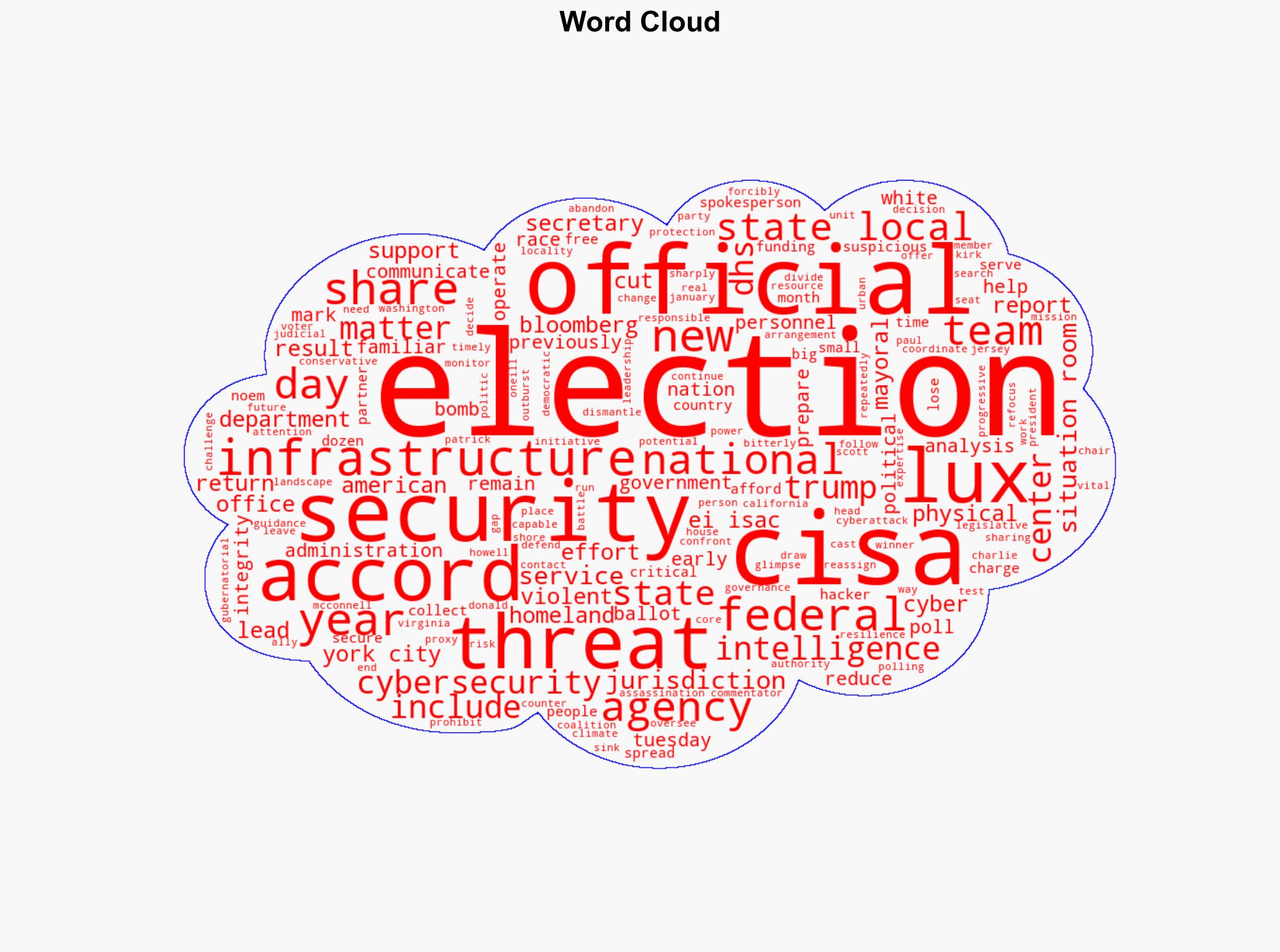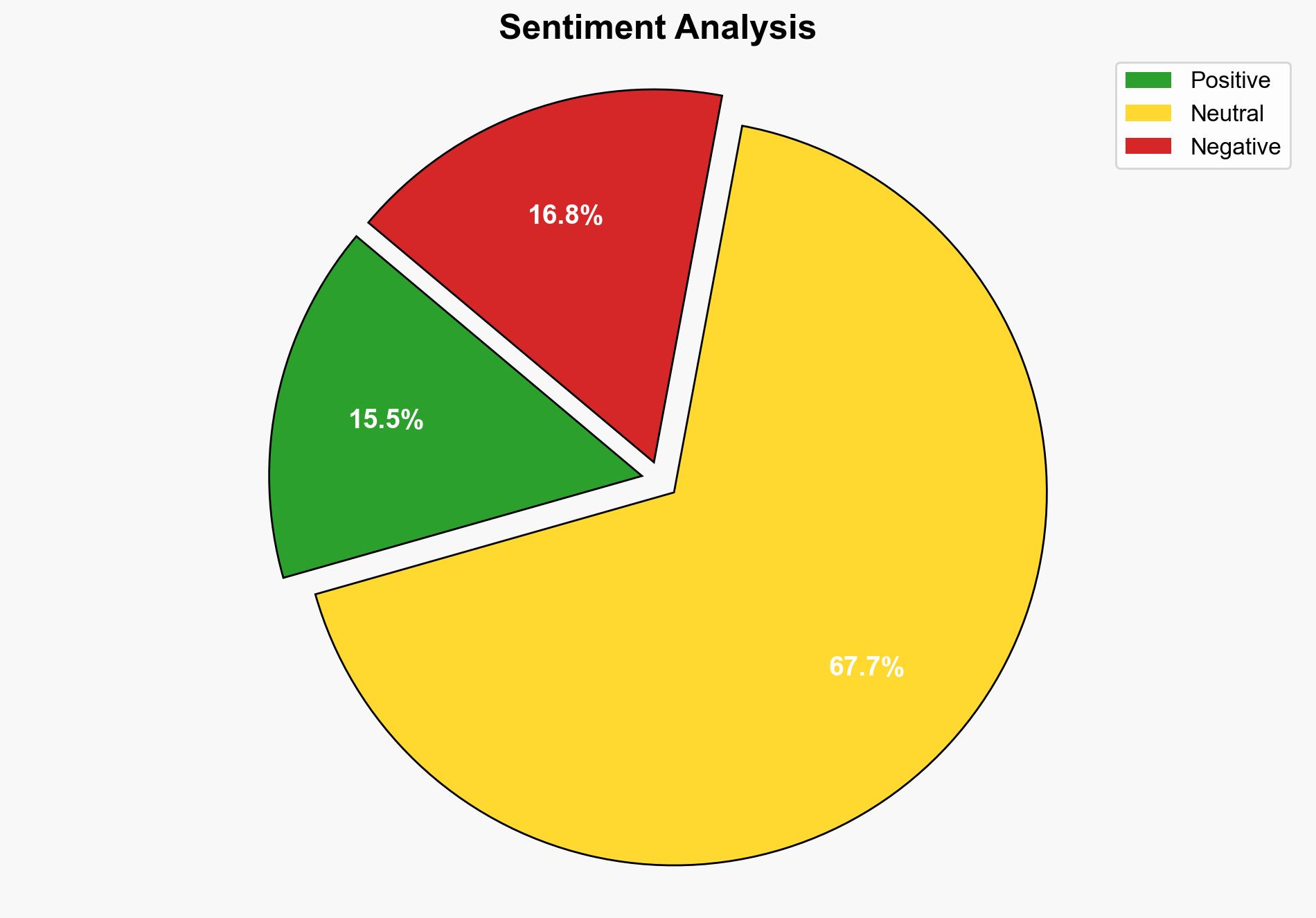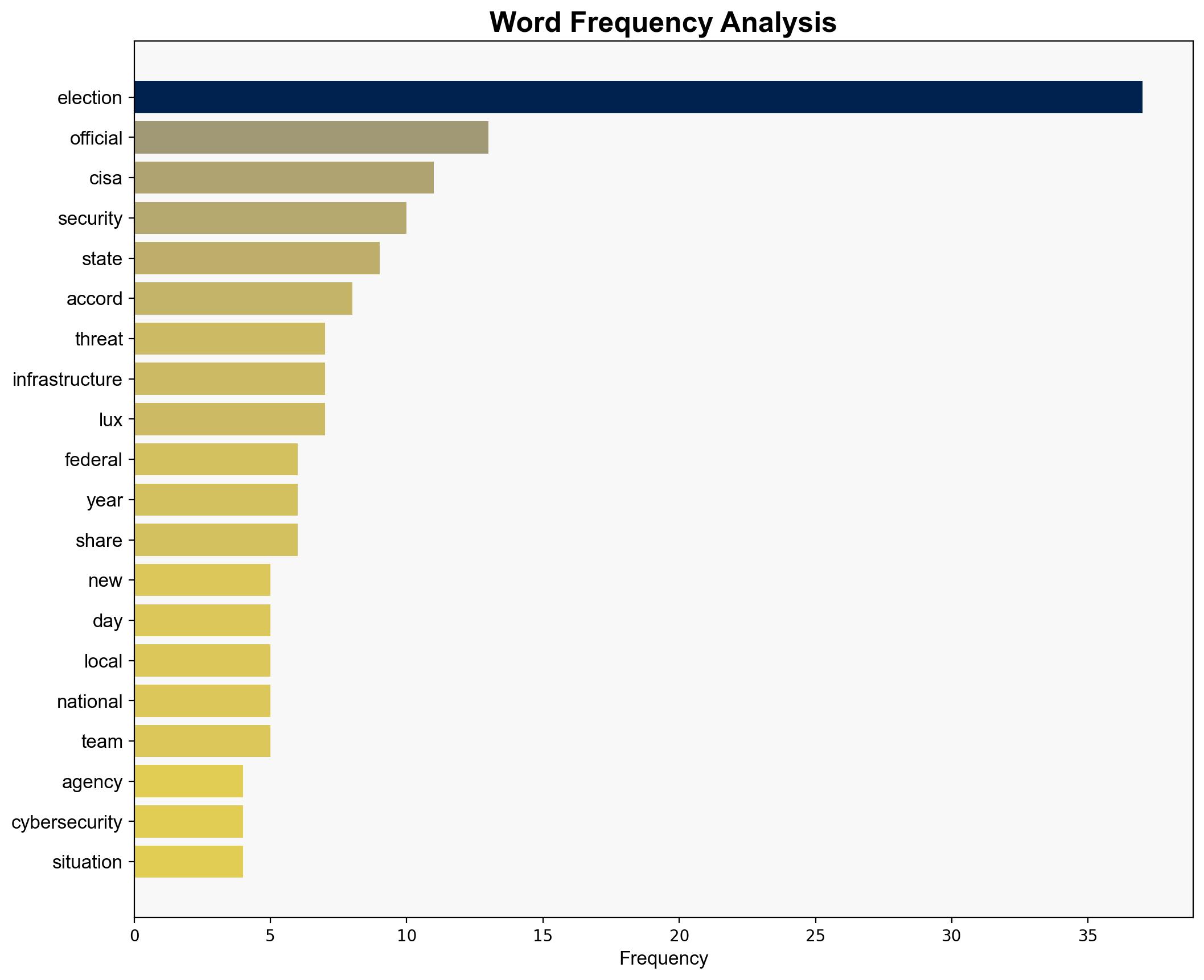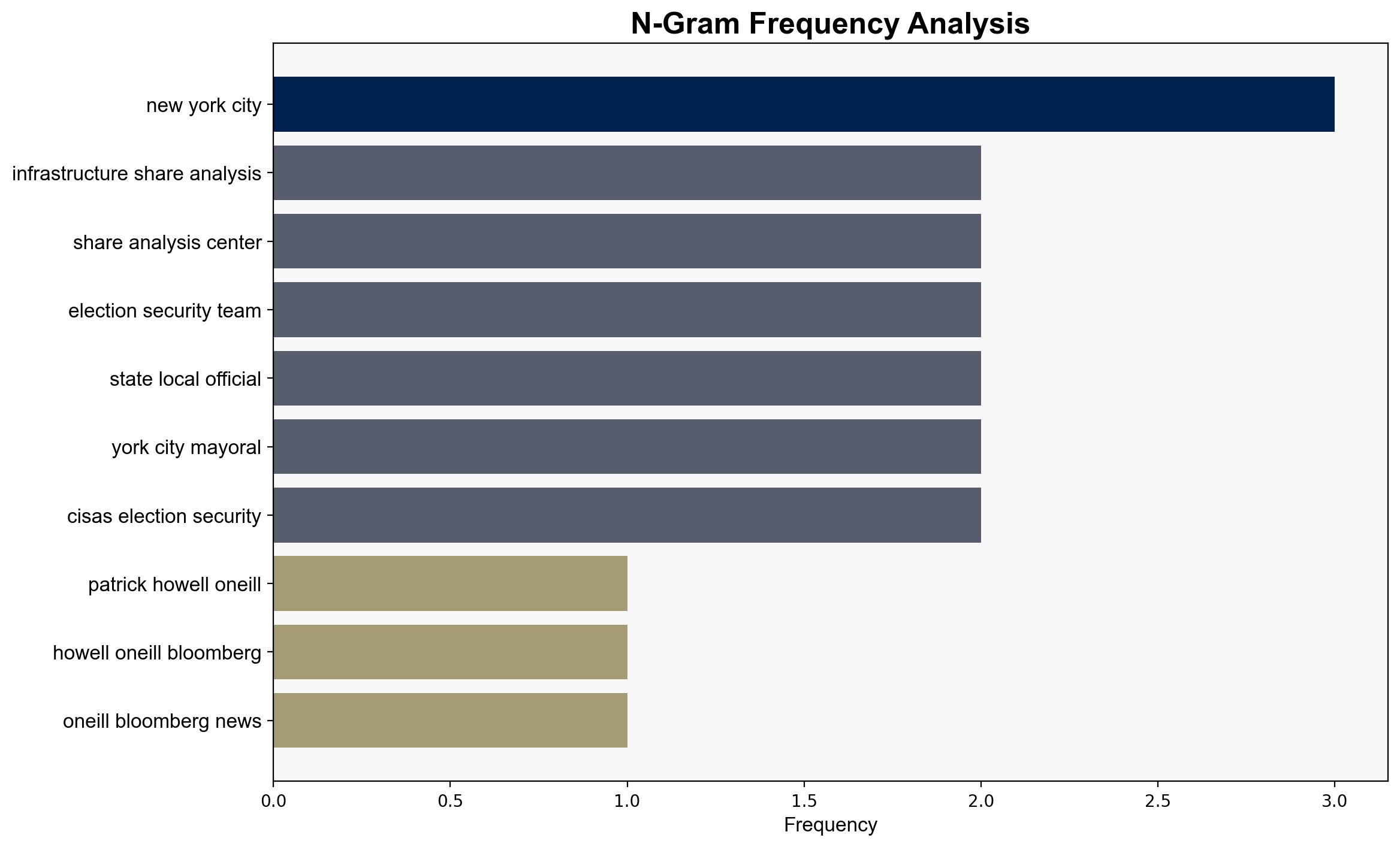US elections face security test as DHS cuts local cyber support – Boston Herald
Published on: 2025-11-04
Intelligence Report: US elections face security test as DHS cuts local cyber support – Boston Herald
1. BLUF (Bottom Line Up Front)
The reduction in federal cybersecurity support to state and local election officials poses a significant risk to the integrity of upcoming elections. The most supported hypothesis suggests that this reduction could lead to increased vulnerabilities and potential exploitation by malicious actors. Confidence level: Moderate. Recommended action: Immediate reassessment of resource allocation and enhanced state-level cybersecurity measures.
2. Competing Hypotheses
Hypothesis 1: The reduction in federal support is a strategic realignment to focus on broader national security threats, with the expectation that states can manage their own election security.
Hypothesis 2: The reduction is a result of political influence aimed at weakening election security infrastructure, potentially increasing vulnerability to interference.
Using Analysis of Competing Hypotheses (ACH), Hypothesis 2 is better supported due to the timing of the cuts and the political context surrounding the decision.
3. Key Assumptions and Red Flags
Assumptions for Hypothesis 1 include the belief that states have sufficient resources and expertise to handle cybersecurity threats independently. A red flag is the lack of clear communication and transition plans from federal to state authorities. For Hypothesis 2, the assumption is that political motivations are influencing security decisions, with a red flag being the abrupt nature of the cuts and reassignment of key personnel.
4. Implications and Strategic Risks
The primary risk is the increased likelihood of cyberattacks on election infrastructure, potentially undermining public confidence in election outcomes. This scenario could lead to cascading effects, such as civil unrest and further political polarization. Economically, the cost of mitigating breaches post-incident could be substantial. Geopolitically, adversaries may exploit these vulnerabilities to influence election outcomes.
5. Recommendations and Outlook
- Conduct a comprehensive risk assessment of state-level election cybersecurity capabilities.
- Facilitate federal-state partnerships to share intelligence and resources effectively.
- Scenario projections:
- Best Case: States successfully mitigate risks with enhanced local measures.
- Worst Case: Significant cyberattack disrupts election processes, leading to contested results.
- Most Likely: Minor disruptions occur, but overall election integrity is maintained with increased vigilance.
6. Key Individuals and Entities
Paul Lux, Charlie Kirk, Zohran Mamdani, Scott McConnell.
7. Thematic Tags
national security threats, cybersecurity, counter-terrorism, regional focus





